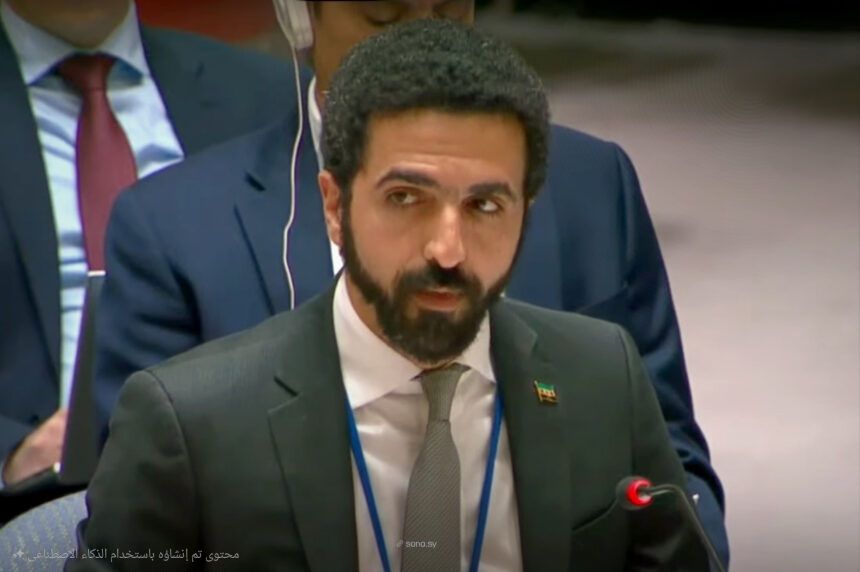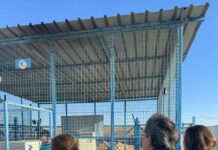
Friday, September 12, Syria’s Permanent Representative to the United Nations, Ibrahim Olabi, said Syria remains committed to moving forward with the destruction of the chemical weapons left behind by the regime of ousted President Bashar al-Assad, noting that Syria needs international support to accomplish this task.
In his speech during a Security Council session on the latest developments in the Middle East and Syria, Olabi said that his country is embarking on a new process aimed at overcoming the remnants of the past and addressing complex issues, foremost among them the destruction of chemical weapons.
Olabi pointed out that the Syrian government has signed a historic agreement regarding the privileges and immunities of the Organization for the Prohibition of Chemical Weapons (OPCW) and its staff, “based on the commitment to provide a legal framework and mechanisms to facilitate progress in the organization’s work.”
He added that Damascus recognizes the magnitude of the challenges associated with assessing and destroying the chemical program, which “the Assad regime has surrounded with secrecy and a complex security structure designed to evade accountability.”
UN Commends Syria’s Cooperation with OPCW
The UN High Representative for Disarmament Affairs, Izumi Nakamitsu, welcomed the significant progress recently made regarding the chemical weapons issue in Syria and praised the Syrian government’s cooperation with the organization on this matter.
The UN News Center reported Nakamitsu’s remarks, stating that the commitment of the new authorities in Syria to “full and transparent cooperation” with the Technical Secretariat of the Organization for OPCW is commendable. She noted that both parties continue to work together on how to address outstanding issues.
Nakamitsu stated, “The Technical Secretariat plans to visit all sites in Syria, taking into account security considerations and other relevant factors,” pointing out that since March, the organization has sent teams to the country four times.
She also explained that due to Israeli attacks on Syrian territory last July, the organization was forced to postpone one of its visits from July to August, indicating that Israeli attacks targeted several sites in Damascus, including a building where the organization’s teams had conducted several consultations with the relevant Syrian authorities.
Nakamitsu mentioned that the OPCW had informed the Syrian authorities of concerning findings gathered from one site, revealing indicators of chemical materials. She highlighted that there is currently a “critical opportunity” to obtain long-awaited clarifications regarding the full extent and scope of the Syrian chemical weapons dossier and to rid the country of all chemical weapons, while noting that there are “significant challenges” in this context.








